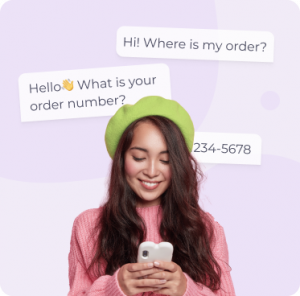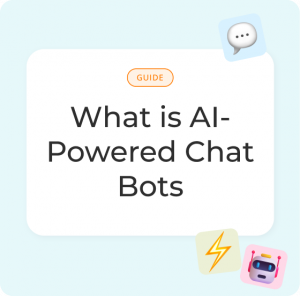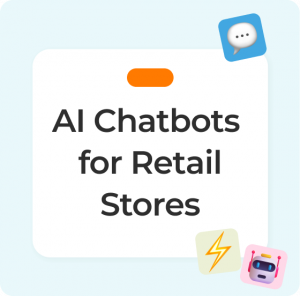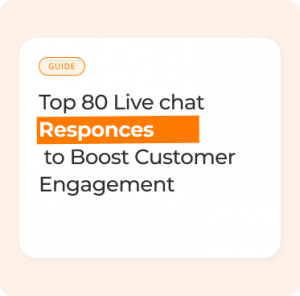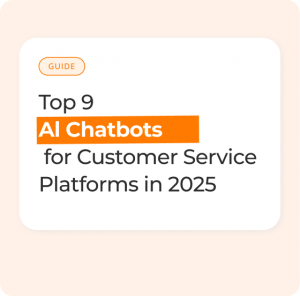AI Chatbots for E-Commerce: Boost Conversions and Reduce Abandoned Carts
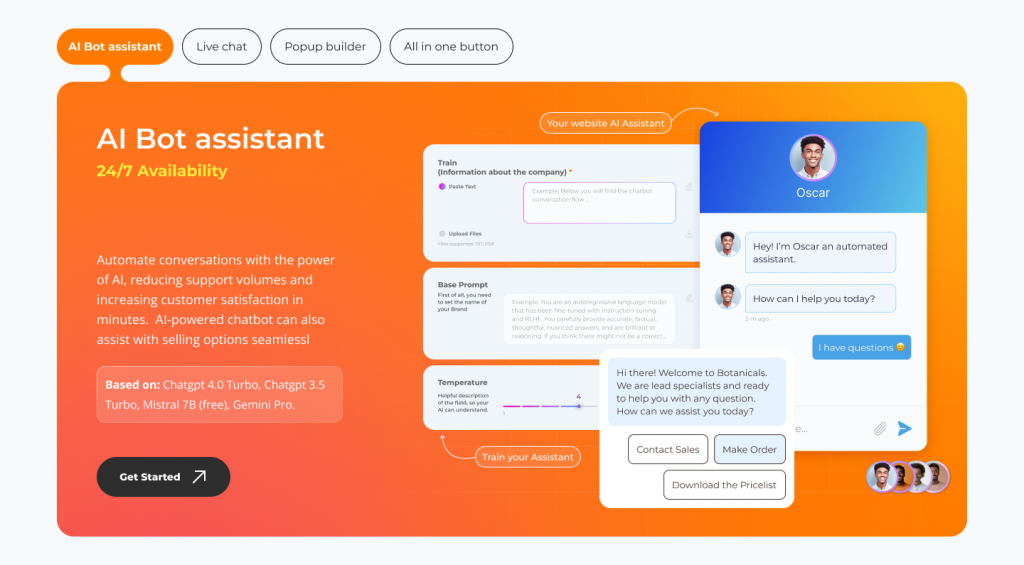
In today’s fast-moving digital marketplace, e-commerce success depends on how quickly and personally you engage each visitor. Customers expect instant responses, personalized offers, and simple checkout processes. That’s where AI chatbots for e-commerce come in—tools that combine automation, intelligence, and customer empathy to increase conversions and cut down abandoned carts.
Why Every Online Store Needs an AI Chatbot
The typical e-commerce website loses up to 70% of carts before checkout. The reasons range from unclear shipping information to simple distractions. AI chatbots bridge that gap by engaging shoppers in real time, answering questions before they bounce, and reminding them to complete purchases.
Unlike traditional live chat tools that rely on human agents, AI chatbots operate 24/7, respond instantly, and learn from customer behavior. They’re not just support tools—they’re conversion machines that enhance customer journeys from the first click to post-purchase follow-up.
Top Challenges in E-Commerce Chat That AI Solves
- Abandoned carts: Customers leave when questions go unanswered or checkout feels confusing.
- High support volume: Customer service teams struggle to manage repetitive inquiries.
- Limited personalization: Generic messaging fails to engage different audience segments.
- Slow response times: Manual live chats can’t match consumer expectations for instant replies.
- Low retention: Post-purchase communication often ends after the first sale.
Each of these challenges can be solved—or at least dramatically reduced—by implementing a well-designed AI chatbot.
What an AI Chatbot Can Do for Online Stores
1. Automate Customer Support
Most customer questions are predictable: “Where is my order?”, “What’s the return policy?”, or “Do you ship internationally?”. AI chatbots handle these instantly, freeing human agents for complex issues. Oscar Chat, for example, can connect with your knowledge base or FAQ page to respond with precise, brand-approved answers.
2. Recover Abandoned Carts
When a shopper leaves without completing checkout, the chatbot can re-engage them with a friendly message like: “Still thinking about your order? I can help with shipping info or find you a discount code.” This proactive approach turns lost sales into conversions—especially when paired with time-sensitive offers or free-shipping prompts.
3. Personalize Product Recommendations
AI chatbots analyze browsing history, previous purchases, and cart data to make smart recommendations. Instead of static upsell banners, your chatbot dynamically suggests complementary products in real time. For example, if a user adds a laptop to the cart, it might suggest a mouse, laptop bag, or extended warranty.
4. Assist During Checkout
Even minor checkout friction—unclear taxes, unavailable payment options, or form errors—can lead to drop-offs. AI chatbots help guide customers step by step. They can auto-fill address fields, clarify shipping timelines, and reassure shoppers that their payment is secure.
5. Manage Order Tracking and Returns
Once the sale is done, chatbots don’t disappear. They can provide order tracking updates, manage return requests, and collect feedback. That kind of post-purchase communication builds loyalty and encourages repeat business.
Integrating AI Chatbots with E-Commerce Platforms
Most modern e-commerce platforms support chat integrations. Oscar Chat offers one-click or script-based setups for:
- Shopify: Add via app store or embed code.
- WooCommerce: Connect through a plugin or direct site script.
- Magento & BigCommerce: Add chat via RESTful API or GTM.
- Custom Stores: Install by inserting a JavaScript snippet into your site footer.
Installation usually takes less than ten minutes, and from there, automation flows can be customized—product recommendations, cart recovery, or support FAQs.
Real Results: What Brands Achieve with Chat Automation
Data from Shopify and global e-commerce reports show measurable gains from chatbot adoption:
- Up to 30% higher conversion rates from engaged visitors.
- 40–60% fewer abandoned carts after introducing reminder flows.
- 25% reduction in support costs by automating FAQs.
- Average response times drop to under 2 seconds.
- Repeat purchase rates increase as chatbots keep users re-engaged post-sale.
These aren’t hypothetical numbers—they’re the outcome of giving customers fast, personalized assistance exactly when they need it.
How Chatbots Improve User Experience and Brand Perception
Customers rarely remember the design of your checkout page, but they remember how smoothly it felt to buy. Chatbots enhance that experience by eliminating friction and creating emotional connection through personalized, helpful communication.
Instead of waiting on hold or submitting a contact form, users get immediate answers, product tips, and reassurance. That instant feedback loop leads to stronger brand trust and higher satisfaction scores.
Using AI Chatbots for Marketing and Retention
Upselling and Cross-Selling
Chatbots can identify buying intent in real time. For instance, when a user adds running shoes to their cart, the chatbot may suggest matching apparel or limited-edition colors. These personalized nudges increase average order value (AOV).
Reactivation Campaigns
AI chatbots can automatically message inactive customers—“Hey Alex, we’ve saved your favorite items!” or “Your points are expiring soon!”—turning dormant users into active buyers.
Customer Loyalty Programs
Chatbots can check loyalty points, redeem rewards, and even celebrate customer milestones (“Congrats! You’ve reached Gold Member status.”). This automation keeps your brand top-of-mind between purchases.
Data, Privacy, and Security Considerations
While automation is powerful, data protection is essential. Always ensure your chatbot complies with GDPR and CCPA standards. Oscar Chat uses secure HTTPS connections and anonymized analytics, meaning your customer data is safe and used responsibly.
Transparency also matters—clearly inform users when they’re speaking with an AI assistant. Trust drives engagement.
How to Measure Chatbot ROI
To justify investment, track these key metrics:
- Engagement rate: How many users interact with your chatbot per session.
- Conversion rate uplift: Difference between sessions with and without chat engagement.
- Cart recovery rate: Percentage of abandoned carts successfully converted.
- Average resolution time: Seconds to answer a customer query.
- Customer satisfaction score (CSAT): Gather post-chat feedback automatically.
Most businesses see positive ROI within 60–90 days of implementation, especially when chatbots are linked to marketing campaigns or loyalty programs.
Best Practices for Implementing an E-Commerce Chatbot
- Start small: Automate FAQs and order tracking first.
- Use natural conversation tone: Avoid robotic phrases.
- Integrate with analytics: Connect to Google Analytics or CRM for deeper insights.
- Keep escalation option: Always allow customers to reach a human when needed.
- Test and iterate: Use A/B tests to refine chatbot scripts and triggers.
Example Workflow with Oscar Chat
- Visitor adds an item to the cart.
- AI chatbot detects inactivity and sends a gentle prompt: “Need help completing your order?”
- If unanswered, the bot follows up with a small discount or FAQ link.
- After purchase, it confirms order status and offers related items.
- 30 days later, the same chatbot triggers a loyalty or review message.
This entire sequence runs automatically—24/7, without human intervention—maximizing both efficiency and conversion rate.
Case Study: Mid-Sized Apparel Brand Using Oscar Chat
One U.S.-based fashion retailer integrated Oscar Chat into their Shopify store. Within three months:
- Abandoned carts dropped from 68% to 41%.
- Average order value grew by 22%.
- Customer service response time decreased from 10 minutes to under 5 seconds.
- Chat engagement led to 18% more newsletter sign-ups.
Most importantly, the chatbot generated a 4.3× return on investment through sales recovered from automation alone.
Common Mistakes to Avoid
- Overloading chatbot with irrelevant questions.
- Failing to set clear goals (cart recovery vs. FAQ vs. upsell).
- Not training the bot with your specific product data.
- Ignoring analytics or customer feedback loops.
- Neglecting mobile experience—most chat happens on smartphones.
Future of AI Chatbots in E-Commerce
The next wave of AI chatbots is already here—bots capable of understanding natural language deeply, integrating with CRMs, and executing tasks like returns or shipping updates without human help. Predictive AI will soon identify customers most likely to abandon carts and proactively offer incentives before it happens.
For e-commerce brands, adopting these tools early means not just staying competitive—but staying ahead.
Conclusion: Turn Conversations into Conversions
An AI chatbot for e-commerce is more than a support tool—it’s a sales, marketing, and retention engine in one. By engaging visitors instantly, reducing cart abandonment, and delivering personalized assistance, chatbots transform how online stores communicate with customers.
If your goal is faster conversions, better service, and lower support costs, Oscar Chat delivers all three. You can add it to your site in minutes and start seeing results from day one.
Ready to boost your conversions? Start your free trial of Oscar Chat today.
Frequently Asked Questions
How can AI chatbots help reduce cart abandonment in e-commerce?
AI chatbots reduce cart abandonment by offering proactive help, answering pricing or shipping questions, and sending timely reminders that nudge customers to complete purchases.
What are the best platforms to integrate AI chatbots for online stores?
Oscar Chat supports integrations with Shopify, WooCommerce, Magento, and BigCommerce. Installation takes under 10 minutes using a no-code script.
Can an AI chatbot personalize recommendations for customers?
Yes. AI chatbots use browsing and purchase history to tailor recommendations, cross-sells, and discounts based on customer intent.
Is it possible to automate post-purchase support with chatbots?
Absolutely. Chatbots manage order tracking, returns, and follow-up messages automatically, improving the post-purchase experience.

